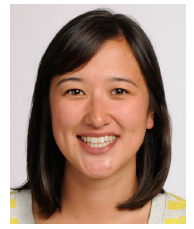“Since 2001, BC’s Aboriginal peoples experienced ‘worsening trends’…including increased rates of HIV/AIDS, use of prescription drugs, poor housing, low birth weights, and the number of children who live as governmental wards. Since 1992, Status-Indian men maintained the lowest life expectancy of any group in the province, dying almost 10 years earlier than non-Aboriginal women, the people who live longest in the province.” [1]

VFMP Student, Allison Nakanishi
One of the 2011 SSRP projects focused on ways to address the issues discussed above. In partnership with the Nak’asdli Health Centre in Fort St. James, three “Art Days” were held at the local Kwah community hall to see if and how community members connected the creation of art of any kind and if it could potentially improve the health and well-being of First Nations’ people. Two students, Allison Nakanishi, Vancouver Fraser Medical Program Class of 2014, and Annika Klopp, Northern Medical Program Class of 2013, worked with Dr. Sarah de Leeuw, a faculty member at UNBC, who is interested “…both in the potential of creative arts to increase the well-being of socioeconomically and health-marginalized people and in the ways that arts (e.g. narrative writing) might promote more empathetic, inquisitive, and creative life-long learners in the profession of medicine.”
Allison Nakanishi was born and raised in Vancouver and she attended University in an urban center. She saw going to a rural setting like Fort St. James as real eye-opener, stating “…it’s really easy to talk about the problems with accessibility and the lack of physicians and resources that are in rural communities, but you really have to go there and experience it for it to really hit home.” Allison was excited about this project because of its qualitative nature, “I think when we are in medical school we are really bombarded with …quantitative, lab-based research…this seemed like a really different and unique opportunity both for me and my life experience”.
Allison’s biggest take away from the project was “…how to provide culturally safe care.” She emphasizes the importance of “…learning how to relate across difference and doing so in a way that allows the people who I am looking after to feel safe and feel comfortable, even though there is so much cultural difference between us.” She feels these are skills she will bring to her patients in her future career as a physician.
Dr. de Leeuw also commented on how she believes the project will enhance Alison’s medical education. “I witnessed the way that the summer work undertaken by Allison Nakanishi transformed her understandings about First Nations people and communities. This, I am confident, will ensure improved clinical and research skills for her future as a health care professional in British Columbia, a province where the betterment of Indigenous peoples’ health is a pressing issue.”